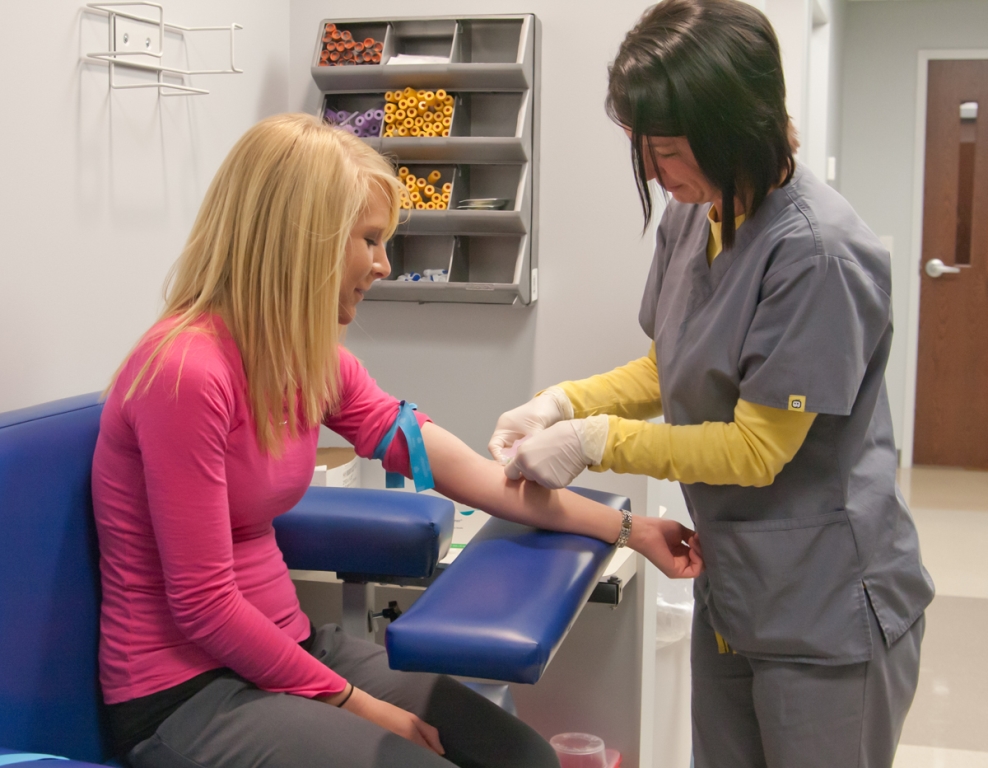What Does a Lab Phlebotomist Do? Essential skills and Career Insights
If your considering a career in healthcare or are simply curious about the behind-the-scenes roles that keep medical labs functioning smoothly, understanding what a lab phlebotomist does is essential. These healthcare professionals play a vital role in diagnosing and monitoring health conditions by collecting blood samples and ensuring they reach the lab accurately and safely. In this comprehensive guide, we’ll explore the daily responsibilities of a lab phlebotomist, the essential skills required, career outlook, benefits of the profession, and practical tips to excel in this field.
Introduction to the Role of a Lab Phlebotomist
A lab phlebotomist is a trained healthcare professional responsible for collecting blood specimens from patients for laboratory testing. These tests help diagnose countless health issues, from simple infections to complex chronic diseases. The role, though often overlooked, is critical in maintaining the integrity of the diagnostic process, ensuring patient safety, and supporting clinical decisions.
What Does a Lab Phlebotomist Do? Key Responsibilities
Primary Tasks and Responsibilities
- Blood Collection: Drawing blood from patients using various techniques such as venipuncture or fingerstick.
- Patient Identification: Verifying patient identity to prevent sample mix-ups.
- Labeling and Handling Samples: Properly labeling blood samples to ensure accurate lab processing.
- Charting and Documentation: Recording pertinent patient details and procedure details.
- Preparing Samples for Testing: Centrifuging, storing, and transporting specimens under proper conditions.
- Ensuring Safety Standards: Adhering to infection control and safety guidelines to protect both patient and staff.
- Patient Comfort and Dialog: Explaining procedures and calming nervous patients to improve their experience.
Additional Duties in the Lab Environment
Beyond blood draws, phlebotomists might assist with:
- Preparing test kits
- Cleaning and sterilizing equipment
- Assisting in inventory management of supplies
- In certain specific cases, helping with administrative tasks like scheduling
Essential Skills and qualities of a Lab Phlebotomist
Technical Skills
- Proficiency in Drawing Blood: Mastery of venipuncture and fingerstick techniques.
- Knowledge of Anatomy: Understanding of veins, arteries, and anatomical landmarks.
- Specimen Handling: Proper labeling, storage, and transport procedures.
- Understanding Laboratory Procedures: Familiarity with lab requisitions and specimen requirements.
Interpersonal Skills
- Excellent Communication: Clearly explaining procedures and providing reassurance.
- Patient Empathy and Compassion: Making patients comfortable, especially those who are anxious or fearful.
- Attention to Detail: Ensuring accuracy in collecting and labeling samples.
- Teamwork: Collaborating effectively with laboratory staff and healthcare providers.
Physical and Mental Attributes
- Steady hand and good dexterity
- Physical stamina to stand for long periods
- Ability to handle stressful situations calmly
- A strong sense of professionalism and ethics
Career Path and Job Outlook
The demand for lab phlebotomists is steadily increasing, driven by the growing need for diagnostic testing in healthcare, aging populations, and expanded laboratory services. According to the U.S. Bureau of Labor Statistics, employment for phlebotomists is projected to grow faster than average, with opportunities across hospitals, clinics, diagnostic labs, and blood donation centers.
Typical education and Certification
Most employers require a high school diploma or equivalent, followed by specialized training programs. Certification is highly recommended and often required, with popular certifications from organizations like the American Society for Clinical Pathology (ASCP) or the National Phlebotomy Association (NPA).
Salary Expectations
| Experience Level | Average Salary |
|---|---|
| entry-Level | $30,000 – $36,000 |
| Experienced | $36,000 - $45,000 |
| Specialized Roles | Up to $50,000+ |
Benefits of Being a Lab Phlebotomist
- Rewarding Work: Playing a key role in diagnosing and monitoring health.
- Job Stability: Growing demand across healthcare settings.
- Relatively Short Training Period: Certification programs often require less time than other healthcare careers.
- Flexible Scheduling: Opportunities for part-time, full-time, and various shifts.
Practical Tips to Succeed as a Lab Phlebotomist
- Get Certified: Obtain recognized certification to improve employment prospects.
- Practice Your Technique: Hands-on experience is vital to minimize patient discomfort and reduce sample errors.
- Enhance Communication Skills: Be empathetic and clearly explain procedures to patients.
- Stay Updated with Best Practices: Keep current with new techniques and safety guidelines.
- Develop Stress Management Techniques: Maintain professionalism even in challenging situations.
Case studies: Real-Life Experiences of Lab Phlebotomists
| Scenario | Outcome |
|---|---|
| Drawing Blood from a Child | Used calming techniques and playful gestures, leading to a prosperous blood draw with minimal distress. |
| Handling Difficult Veins | Utilized choice sites and advanced techniques, ensuring sample collection without patient discomfort. |
First-Hand Experience: Becoming a Lab Phlebotomist
Many phlebotomists describe their initial days as challenging yet rewarding. Practical training, patience, and a caring attitude are key to building confidence. Over time, you’ll develop a keen eye for veins, a gentle touch, and the ability to manage diverse patient needs effectively. Success in this career comes from continuous learning,adaptability,and a genuine desire to help others.
Conclusion
a lab phlebotomist plays an indispensable role in healthcare by accurately collecting and handling blood samples that are crucial for diagnosis and treatment.This career offers a unique blend of technical skill, patient interaction, and professional growth opportunities.With proper training, certification, and a passion for helping others, you can thrive as a lab phlebotomist.If you’re detail-oriented, compassionate, and interested in entering the healthcare field, this profession could be a perfect fit for you.
Ready to start your journey? Explore certification programs nearby and consider gaining practical experience through internships or volunteering. the demand for skilled phlebotomists continues to rise, making it an excellent career choice for those interested in making a tangible difference in patient lives.
